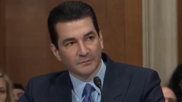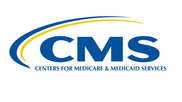| Editor's Choice: Policy & Regulation | An election year usually means little movement in Congress on major policies. That’s especially true for hot-button issues in healthcare, according to Tom Nickels, the American Hospital Association’s executive vice president of government relations, meaning major reforms may have to wait until after the midterm election—or perhaps after the next presidential race. An election year usually means little movement in Congress on major policies. That’s especially true for hot-button issues in healthcare, according to Tom Nickels, the American Hospital Association’s executive vice president of government relations, meaning major reforms may have to wait until after the midterm election—or perhaps after the next presidential race. | | |
| The American College of Physicians (ACP) has published a list of recommendations aimed at ending gender disparities in medicine for compensation and career advancement, as well as calling on healthcare organizations to provide a minimum of six weeks paid leave for physicians, residents and medical students. The American College of Physicians (ACP) has published a list of recommendations aimed at ending gender disparities in medicine for compensation and career advancement, as well as calling on healthcare organizations to provide a minimum of six weeks paid leave for physicians, residents and medical students. | | |
| In a final rule that CMS said would help customers “suffering from high Obamacare premiums,” the agency’s 2019 rule for the Affordable Care Act (ACA) exchanges would give states more power on how plans cover required benefits and widen exemptions to the law’s individual mandate in the final year customers can be penalized for not having ACA-compliant insurance. In a final rule that CMS said would help customers “suffering from high Obamacare premiums,” the agency’s 2019 rule for the Affordable Care Act (ACA) exchanges would give states more power on how plans cover required benefits and widen exemptions to the law’s individual mandate in the final year customers can be penalized for not having ACA-compliant insurance. | | |
| “Although medical devices provide great benefits to patients, they also present risks,” said FDA Commissioner Scott Gottlieb, MD. “And we are focusing equal attention on advancing new frameworks for identifying risks and protecting consumers.” “Although medical devices provide great benefits to patients, they also present risks,” said FDA Commissioner Scott Gottlieb, MD. “And we are focusing equal attention on advancing new frameworks for identifying risks and protecting consumers.” | | |
| In its final report on the 2018 open enrollment period on the Affordable Care Act (AC) exchanges, CMS said 11.8 million people selected or were re-enrolled in a plan. While the final tally combining enrollment from the federal and state exchanges represents a 3 percent decline from the prior year, supporters of the ACA painted it as a positive, considering cuts in outreach and advertising and the push to repeal the law by the Trump administration. In its final report on the 2018 open enrollment period on the Affordable Care Act (AC) exchanges, CMS said 11.8 million people selected or were re-enrolled in a plan. While the final tally combining enrollment from the federal and state exchanges represents a 3 percent decline from the prior year, supporters of the ACA painted it as a positive, considering cuts in outreach and advertising and the push to repeal the law by the Trump administration. | | |
| At the April meeting of the Medicare Payment Advisory Commission (MedPAC), the panel voted to recommend a 30 percent cut to payment rates for standalone emergency departments (EDs) and indicated it may suggest action on hospital quality reporting later this year. At the April meeting of the Medicare Payment Advisory Commission (MedPAC), the panel voted to recommend a 30 percent cut to payment rates for standalone emergency departments (EDs) and indicated it may suggest action on hospital quality reporting later this year. | | |
| CMS has finalized its rule for 2019 rates for Medicare Advantage and Medicare Part D, giving insurers a bigger-than-expected rate increase while finalizing proposals on expanded supplemental benefits and efforts aimed at fighting opioid addiction. CMS has finalized its rule for 2019 rates for Medicare Advantage and Medicare Part D, giving insurers a bigger-than-expected rate increase while finalizing proposals on expanded supplemental benefits and efforts aimed at fighting opioid addiction. | | |
| The U.S. Department of Veterans Affairs (VA) is fighting claims from fired VA Secretary David Shulkin, MD, that the agency is moving toward privatizing veterans’ healthcare, issuing a press release calling such talk “completely false and a red herring designed to distract and avoid honest debate on the real issues." The U.S. Department of Veterans Affairs (VA) is fighting claims from fired VA Secretary David Shulkin, MD, that the agency is moving toward privatizing veterans’ healthcare, issuing a press release calling such talk “completely false and a red herring designed to distract and avoid honest debate on the real issues." | | |
| The failure to pass funding for reinsurance and cost-sharing reduction subsidies for the Affordable Care Act (ACA) exchanges and the potential for pharmaceutical-backed changes to the 340B drug discount program are just some of the major issues on the American Hospital Association’s radar this year, according to executive vice president of government affairs Tom Nickels. The failure to pass funding for reinsurance and cost-sharing reduction subsidies for the Affordable Care Act (ACA) exchanges and the potential for pharmaceutical-backed changes to the 340B drug discount program are just some of the major issues on the American Hospital Association’s radar this year, according to executive vice president of government affairs Tom Nickels. | | |
| CMS Administrator Seema Verma, MPH, offered some hints at the agency’s priorities in its annual rulemaking for Medicare this year, suggesting a slew of new policies on price transparency, interoperability and physician self-referral laws. CMS Administrator Seema Verma, MPH, offered some hints at the agency’s priorities in its annual rulemaking for Medicare this year, suggesting a slew of new policies on price transparency, interoperability and physician self-referral laws. | | |
| |
|
| ![]() | |
|














